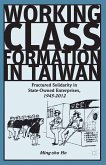The book shows that grassroots print culture was central to these developments: driving the development of ideology and strategy - broadly defined as terrorism, education and workplace organization - and providing an informal structure to a movement which shunned recognized leadership and bureaucracy.
This study offers a rich analysis of the cultural foundations of Spanish anarchism. This emphasis also challenges claims that the movement was "exceptional" or "peculiar" in its formation, by situating it alongside other decentralized, bottom-up mobilizations across historical and contemporary contexts, from the radical pamphleteering culture of the English Civil War to the use of social media in the Arab Spring.
Dieser Download kann aus rechtlichen Gründen nur mit Rechnungsadresse in A, B, BG, CY, CZ, D, DK, EW, E, FIN, F, GR, HR, H, IRL, I, LT, L, LR, M, NL, PL, P, R, S, SLO, SK ausgeliefert werden.









